The Idaho lease agreement is a frequently executed contract that outlines the conditions associated with the use of a rental property in exchange for a monetary payment. The lessor (landlord) and lessee (tenant) must come to a mutual understanding of what the sum of the periodic payment will be, date in which the tenancy is terminated, and any limitations that may be applicable to the use of the property. If both parties concur with each other’s contractual provisions, the document must then be filled out and signed to secure its validity. (Generally speaking, a prospective tenant will usually be required to complete a rental application in order to be accepted as a viable candidate.)
Lease Agreements by Type
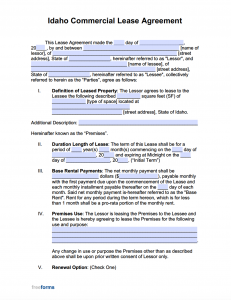 Commercial Lease Agreement – For commercially zoned property that is specifically used for the purpose of housing a company’s business facility.
Commercial Lease Agreement – For commercially zoned property that is specifically used for the purpose of housing a company’s business facility.
Download: PDF, Word (.docx)
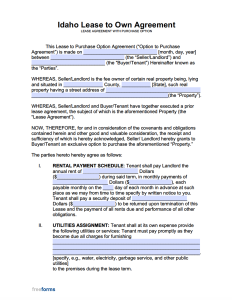 Lease to Own Agreement – Grants the tenant the “option to buy” while actively renting the property. Once the tenancy expires, the leaseholder loses the right to purchase the asset.
Lease to Own Agreement – Grants the tenant the “option to buy” while actively renting the property. Once the tenancy expires, the leaseholder loses the right to purchase the asset.
Download: PDF, Word (.docx)
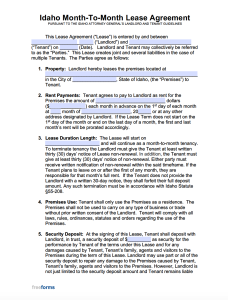 Month-to-Month Lease – Referred to as a “Tenancy at Will”, this type of agreement allows either party to end the contract at any point on the condition that one (1) month’s notice is provided (§ 55-208).
Month-to-Month Lease – Referred to as a “Tenancy at Will”, this type of agreement allows either party to end the contract at any point on the condition that one (1) month’s notice is provided (§ 55-208).
Download: PDF, Word (.docx)
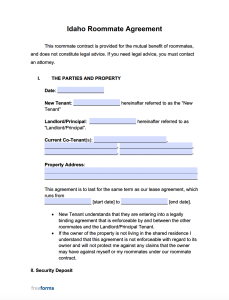 Roommate Agreement – Specific to the rental of a designated area/room within a residential dwelling.
Roommate Agreement – Specific to the rental of a designated area/room within a residential dwelling.
Download: PDF, Word (.docx)
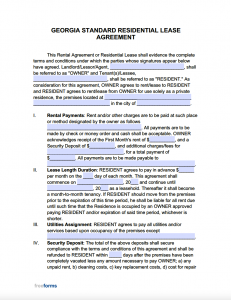 Standard Lease Agreement – Affirms the obligations incorporated in an arrangement to rent a residence for a given term.
Standard Lease Agreement – Affirms the obligations incorporated in an arrangement to rent a residence for a given term.
Download: PDF, Word (.docx)
 Sublease Agreement – A lease agreement performed when the current lessee would like to rent the property they are contractually involved with to a secondary lessee (if deemed permissible by the original lessor).
Sublease Agreement – A lease agreement performed when the current lessee would like to rent the property they are contractually involved with to a secondary lessee (if deemed permissible by the original lessor).
Download: PDF, Word (.docx)
Landlord-Tenant Laws
The Office of the Attorney General provides a reference guide known as the Landlord and Tenant Manual that outlines the legal rights and responsibilities of individuals participating on either side of a rental agreement.
Required Landlord Disclosures
Idaho has no state-required disclosure statements that need to be included within the content of a lease agreement. The only disclosure that a landlord is obligated to fulfill is the federally demanded Lead-Based Paint Disclosure (if the building was constructed prior to 1978). This will include an informative brochure educating readers about the dangers linked to lead exposure as well as any factual details regarding the lead hazards that may be present within the property.
When is Rent Late?
Idaho’s code of law does not contain a statute that designates a specific due date or grace period. The time and location in which the sum of the rent is to be paid should be disclosed within the lease agreement before the prospective tenant occupies the property.
Late Fees
There is no legal stipulation that ordains a limitation on the sum of a late rent payment charged by the landlord. All fees should be disclosed within the contract before signing (as mentioned on page 6 of the Landlord and Tenant Manual).
NSF Checks
If a landlord receives a bad check from the tenant and both parties cannot come to a resolution on the penalty, the landlord may file a civil lawsuit in small claims court for the value written on the check, as well as an additional $100 or three (3) times the amount listed on the check (§ 1-2301A).
Security Deposit Maximum
There is no state-regulated maximum security deposit a lessor can request from a prospective lessee. The amount should be agreed upon and transcribed to the rental agreement before the commencement of the occupancy.
Security Deposit Return
If there is no set time period for the return of a security deposit within the written agreement, the landlord has twenty-one (21) days from the time the tenant vacates the premises. Thirty (30) days is the maximum timeframe a landlord can stipulate within the contract for the refund of a deposit (§ 6-321).
Landlord’s Entry
Within the context of the state’s law, there is no fixed number of days or hours that a landlord has to give prior notice to enter the domicile of a current lessee. It is highly recommended to include a reasonable timespan within the rental contract before commencing the tenancy (addressed in the following manual excerpts).


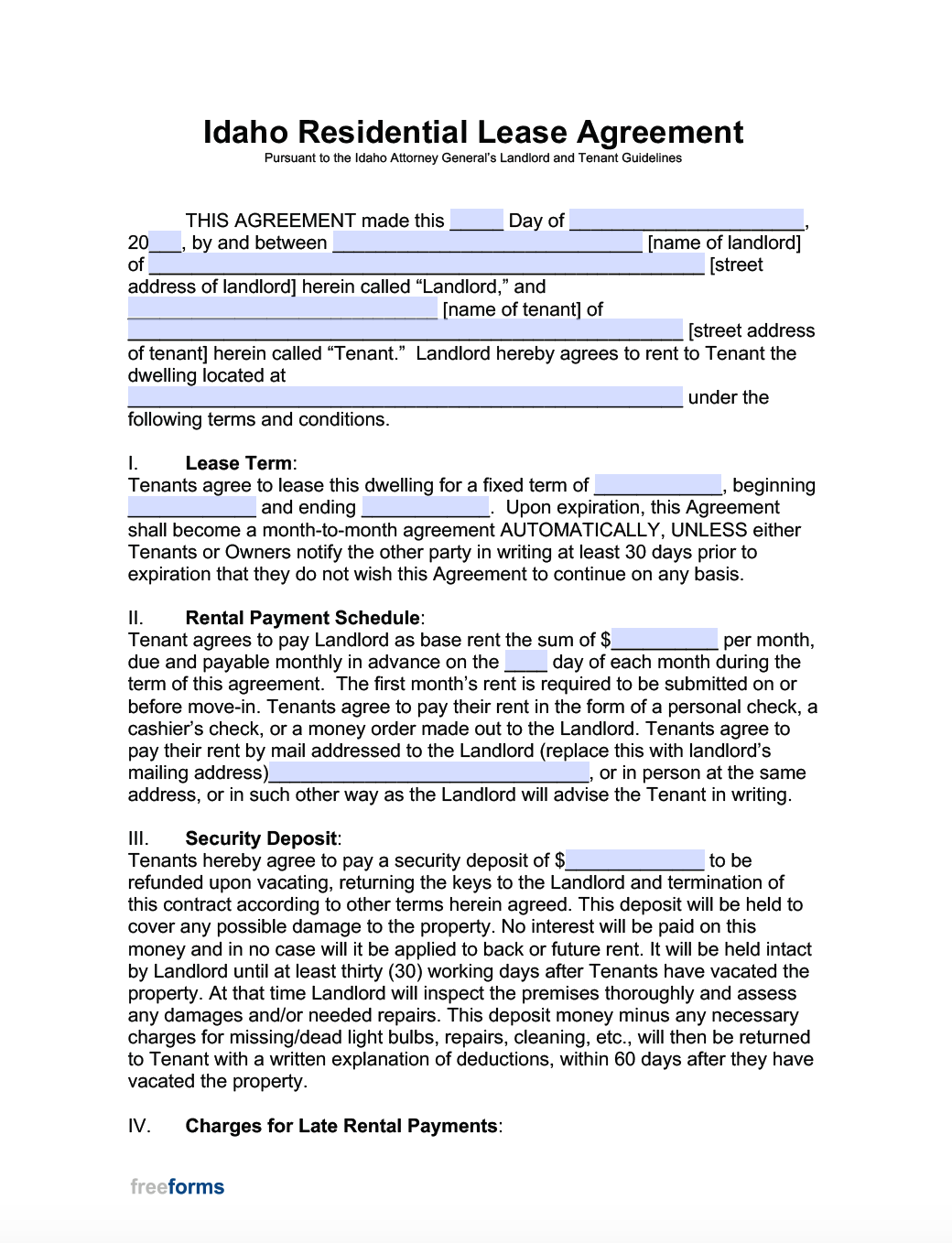
0 comments
Comments are closed.